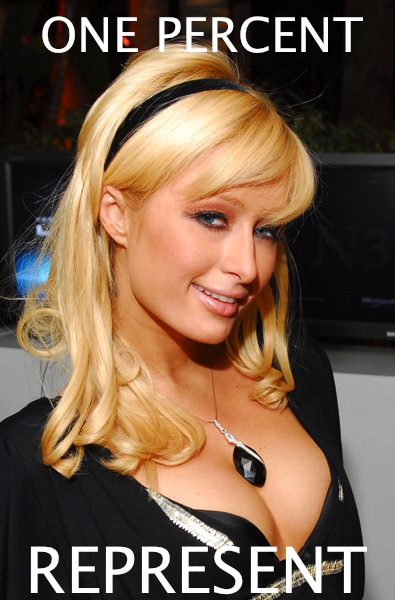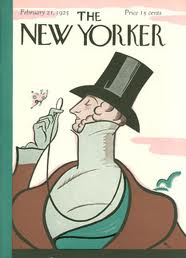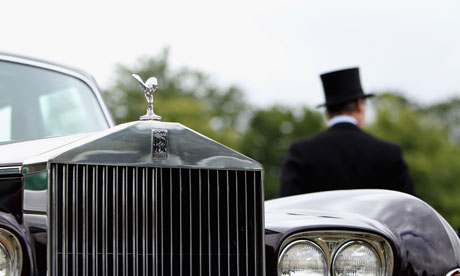When I was younger I glorified wealthy people. I thought they were smarter (how else would they get so much money?) and socially gifted. They were superior and uncommon — exposed to better food, housing and worldly experiences. The fact that they could afford better vacations and mingle with other wealthy people gave them such a leg-up in my mind that I was almost afraid of them.
As a girl, I felt common and uninteresting around the popular and more affluent girls in middle school. I deferred to them for fashion trends and lunchroom seating. I was blinded by their Calvin Klein jeans and the Cadillacs their parents drove. I felt honored if they talked to me and called them stuck-up if they didn’t.
In college, my first roommate was from the Detroit suburbs, one of the handful of sterling and tudor-style neighborhoods that the auto industry and old money  supported. I always felt simple and unsophisticated around her West Bloomfield friends. I did not fit in. They drove to school in shiny new cars. Vacationed in Naples, Cabo or the Hamptons. They rushed sororities and dated fraternity boys. I envied their lack of financial worries and expensive appearance (clothes from trendy full-price stores, skin babysat by a dermatologist, hair courtesy of THE BEST salons, perfect noses,waxing, buffing, enhancing). Although I admired them I never felt like I truly knew them.
supported. I always felt simple and unsophisticated around her West Bloomfield friends. I did not fit in. They drove to school in shiny new cars. Vacationed in Naples, Cabo or the Hamptons. They rushed sororities and dated fraternity boys. I envied their lack of financial worries and expensive appearance (clothes from trendy full-price stores, skin babysat by a dermatologist, hair courtesy of THE BEST salons, perfect noses,waxing, buffing, enhancing). Although I admired them I never felt like I truly knew them.
The summer after college I nannied for a family on the North Shore of Chicago. Their home was traditional with polished wood floors and mature trees in the yard. It was also to me, HUGE. I was a poor country mouse in their wealthy suburbs. Their neighbor had a forest green BMW sedan, which was a rare sight for me but entirely common for the area. Wives wore fur coats to teacher conferences. Everyone belonged to a country club or two.
I’ll never forget how surprisingly human I found the husband and wife to be. They did not act superior or affected, although they had a subscription to The New Yorker and tried to teach me the proper usage of lie, lay and have lain (it’s still 50/50 whether I use them correctly). The wife, Mary Kate*, laughed openly and  brightly, often with gobs of broccoli stuck in her teeth. She confided in me how she had cried and cried on her 30th birthday because she was still single. The husband, Matthew* (who rescued her from spinsterhood;), told me at the kitchen table how he loves the way Mary Kate lights up a room when she walks in. Matthew called himself hopelessly dull. He often inquired about my college-girl-in-the-city antics. He would listen to my stories and wistfully stare into the distance as his daughter called from the swing-set, Daddy! Daddy! Push me! They shared their home, their food (Mary Kate and I went through a mountain of cashews, rice cakes and diet 7UP that summer), their children (two sweet baby girls), their car (foolishly trusting me to drive their stick shift Saab — I stalled at every stop sign) and their extended family (suddenly I had grandparents, aunts and uncles in the Chicago area) with me. They were my first real exposure to people of sufficient wealth mixed with warmth and humanity. I loved them. I loved them for their light and kindness.
brightly, often with gobs of broccoli stuck in her teeth. She confided in me how she had cried and cried on her 30th birthday because she was still single. The husband, Matthew* (who rescued her from spinsterhood;), told me at the kitchen table how he loves the way Mary Kate lights up a room when she walks in. Matthew called himself hopelessly dull. He often inquired about my college-girl-in-the-city antics. He would listen to my stories and wistfully stare into the distance as his daughter called from the swing-set, Daddy! Daddy! Push me! They shared their home, their food (Mary Kate and I went through a mountain of cashews, rice cakes and diet 7UP that summer), their children (two sweet baby girls), their car (foolishly trusting me to drive their stick shift Saab — I stalled at every stop sign) and their extended family (suddenly I had grandparents, aunts and uncles in the Chicago area) with me. They were my first real exposure to people of sufficient wealth mixed with warmth and humanity. I loved them. I loved them for their light and kindness.
Intellectually Speaking…
I also spent a lot of time admiring those who could spout off in a political cross-fire. If you could answer questions about economies outside the U.S. or knew what a shiraz and a syrah have in common I thought you were brilliant and therefore worthy of much awe and praise. If you were quick with a comeback or counterpoint I held you in high regard. I didn’t harbor such knowledge and intellectual sure-footedness. I never had the gifts of rapid-fire retorts and confident voice. I was the thoughtful listener that may or may not be able to recall the key points of a cerebral conversation. I answered many fact-based questions with, I don’t know, and felt inferior for it.
I felt mildly intellectual when literature was the topic of discussion. Now I know why.
Literature and reading involve a good amount of feeling and humanity. It ‘s not all up in the head. Much of the subject matter slides into the heart. Feelings are involved, not just grey matter. Which leads to what impresses me now.
Want to Impress Me?
My point of reverence has shifted. Brilliance is redefined.
What you own and who you know are infinitely less important than what you love and who you are.
Intellectual jousting turns me off. Feelings are sexy. Physical and spiritual intimacy are hot.
If you want to impress me, be kind to my children, show respect to my parents. Empathize with the wait staff at a busy restaurant. Be brave and show vulnerability. Know yourself intimately. Play the hell out of a musical instrument. Create from your transparent soul. Listen as much as you talk. Help others think and FEEL.
Bonus points if you score high in personal, spiritual and emotional intelligence.
Wealthy Intellectuals Rock Too
Wealth and intellect are certainly not mutually exclusive from kindness and empathy. I learned that from Matthew and Mary Kate and many others since. So whoever you are, may you be admired for your ability to: light up a room, laugh unabashedly and share whatever abundance you have.
What old perceptions have changed for you? Are you intimidated by wealth or intellectualism? What impresses you?
Related articles
- Emotional Intelligence/Emotional Growth (ricardolifecoach.wordpress.com)
- Emotional Intelligence and Your Job Search (leavingthepublicsector.net)
- Exhausting Perfection I’m Breaking Up with You (space2live)
- Becoming Real: What Happens When You’ve Been Through Some Sh*t (space2live)









[…] Wealthy People and Intellectuals Used to Intimidate Me […]
I don’t know anybody wealthy but I’m intimidated by power and authority. I liked that story of how you found these wealthy people just human and nice like anybody else. I sort of like intellectuals, well, intelligent people anyway, because I love a debate – but not if it’s got too many facts in it, then I just lose straightaway.
There are so many kinds of intelligence and brilliance. Those who just know a lot of facts are not as satisfying to engage. I love people who are insatiably curious and enthusiastically generous with their knowledge. When discussion becomes competitive I tend to bow out. Thank you so much for reading and commenting.:)
Great, vivid reflections… and thought provoking…. thank you.
Thanks for reading Dominique. This topic was a little confession I’d been wanting to make for a while.;) It’s freeing to know that the rich and the intellectual don’t have anything on someone who is awake in life.
Interesting that I thought you were wealthy and wayyy more intellectual! ; )
When was that Jill? Back in 5th grade? No, I just wore expensive clothes. I didn’t even truly know what an intellectual was until college or later.;)